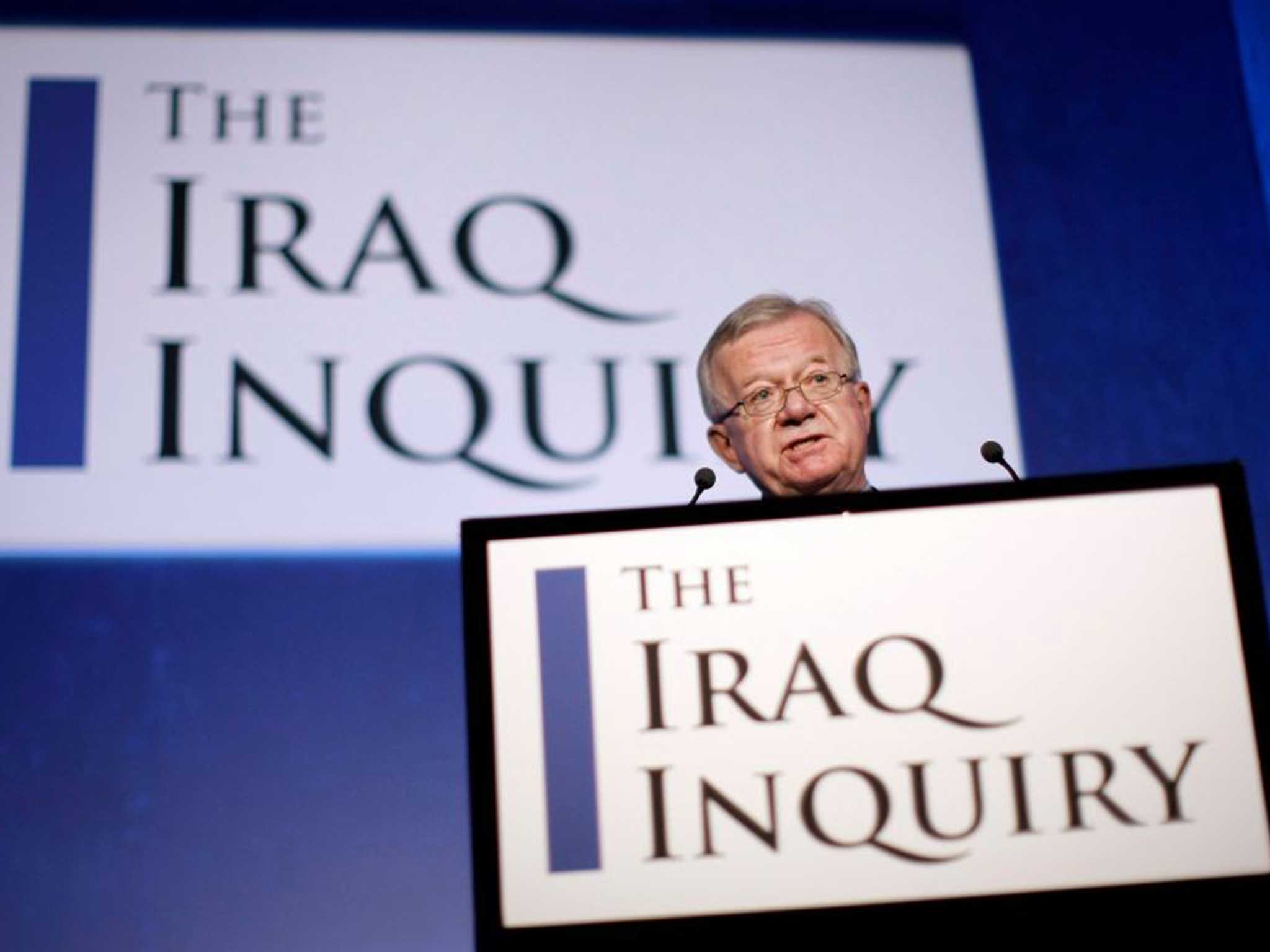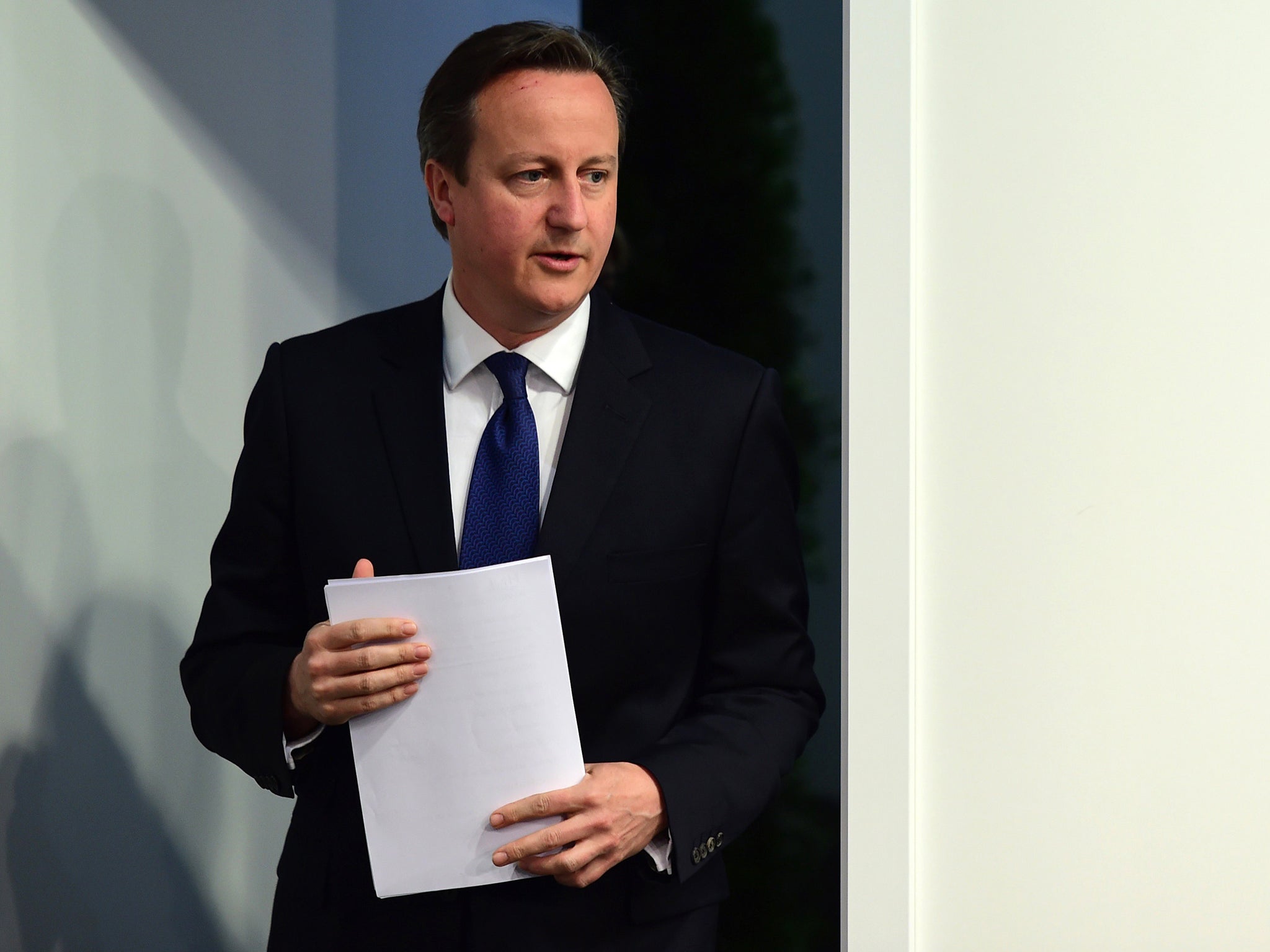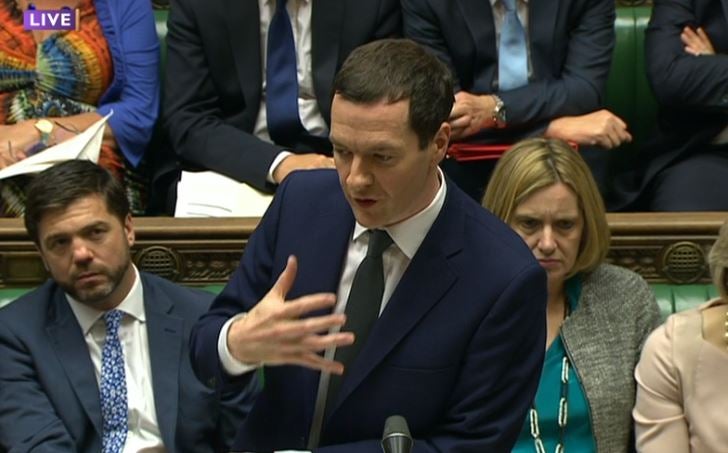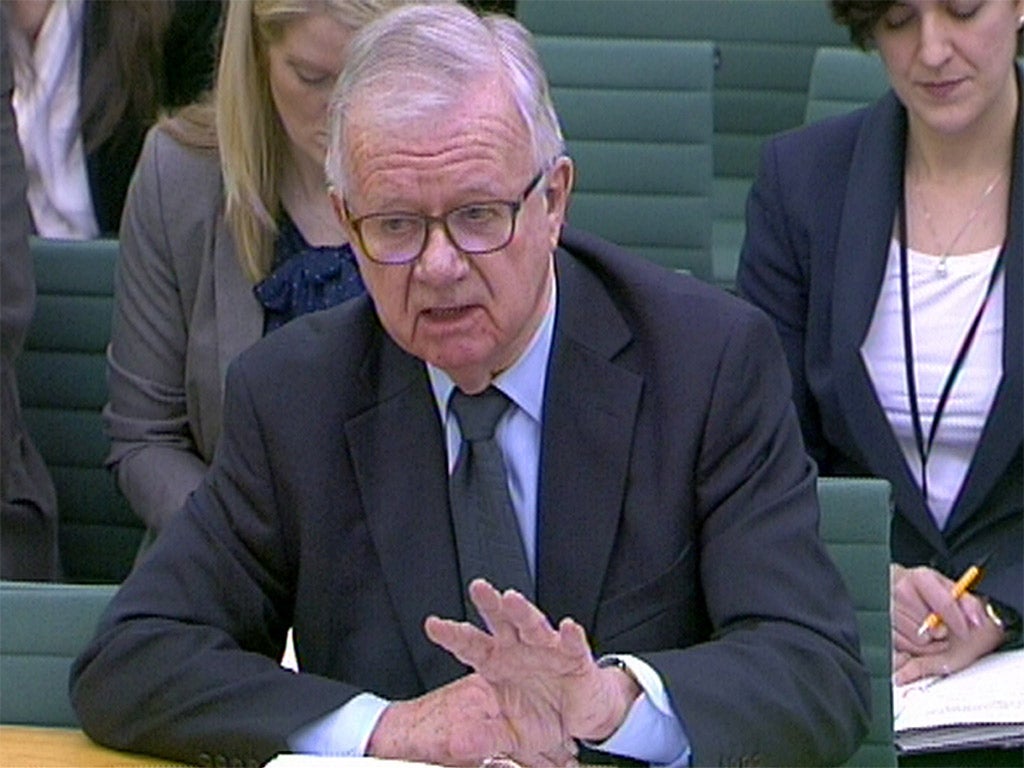David Cameron tells Sir John Chilcot he is 'fast losing patience' with continued delays in publication of Iraq war inquiry
In an exchange of letters, Sir John Chilcot tells PM he is unable to say when inquiry will report due to delays in those submitting responses to criticism

Your support helps us to tell the story
From reproductive rights to climate change to Big Tech, The Independent is on the ground when the story is developing. Whether it's investigating the financials of Elon Musk's pro-Trump PAC or producing our latest documentary, 'The A Word', which shines a light on the American women fighting for reproductive rights, we know how important it is to parse out the facts from the messaging.
At such a critical moment in US history, we need reporters on the ground. Your donation allows us to keep sending journalists to speak to both sides of the story.
The Independent is trusted by Americans across the entire political spectrum. And unlike many other quality news outlets, we choose not to lock Americans out of our reporting and analysis with paywalls. We believe quality journalism should be available to everyone, paid for by those who can afford it.
Your support makes all the difference.David Cameron has told Sir John Chilcot he is “fast losing patience” with his inquiry into the Iraq war.
Sir John, who has chaired the six-year investigation, wrote to the Prime Minister saying he was still unable to say when the inquiry will be ready to report, fuelling an angry response from Mr Cameron.
It follows The Independent on Sunday's revelation that the inquiry is not expected to be published for another year, meaning the investigation will have taken longer to report than the war itself.
In his letter to the Prime Minister, Sir John said the Maxwellisation process – whereby those criticised in the report are given time to respond – had “opened up new issues,” while others have yet to reply.

"It is now essential that all remaining responses are received so that the process can be completed," he wrote. "Only when all responses are in our possession and have been evaluated will I be able to write to you with a realistic timetable for completion."
But in his reply Mr Cameron expressed his “disappointment” at news of another delay, saying the public and those who lost loved ones were “awaiting the results of your work”.
"They, and I, had hoped for publication of your report by now and we are fast losing patience," he added.
George Osborne, who was standing in for Mr Cameron at Prime Minister's Questions, called on those involved in the inquiry to "get on with it" and publish it as soon as possible. He faced angry questions from the SNP's Westminster leader Angus Robertson, who said ministers had a "moral or political responsibility" to discover why the report keeps being delayed.

"The Chilcot Inquiry is of course completely independent of Government and we do not determine when it publishes its conclusions," the Chancellor replied.
"But where I agree with you is this - it has been a long time coming and people I think are running out of patience, they want to see that report.
"I'd make a broader observation that of course there was a cross-party alliance between the Scottish Nationalists and the Conservative Party when we called for that inquiry to be set up earlier than it actually was. If it had been we'd have the conclusions now."
Acknowledging the government's frustration, Sir John wrote: "I and my colleagues understand your concern that it has not been possible to publish our conclusions before now.
"I am sure you will also share my desire to ensure that those conclusions - covering a period of nine years - hold firm once published."
Latest news of the Chilcot inquiry's delay will increase pressure on Mr Cameron to scrap the six-year, £10m investigation.
Lord Morris of Aberavon, a former Labour Attorney General, has asked the Prime Minister to assess “the case for discharging the Chairman and members of the Chilcot inquiry, and inviting the Cabinet Secretary to set out a mechanism for an interim report to be produced on the basis of the evidence gathered”.

In February Sir John Chilcot faced a storm of protest from MPs after it emerged that his report would not be published before the election. At the time it was widely assumed it would be published soon after May, although Sir John refused to be drawn on the timetable when he gave evidence to the Foreign Affairs Committee of MPs.
The report continues to be held back by those criticised in the report, which includes about 30 former or current ministers, officials and military officers who have been sent sections of the draft report in which they are criticised.
Tony Blair, who is among those criticised in the report, has denied he is partly responsible for holding up the report, insisting he would be happy to see the publication of all the documents so he can defend his record.
A spokesman for the former Prime Minister said: “It’s completely wrong to say that Tony Blair is the reason for the delay. He has as much reason as anyone for wanting the report published, not least because it gives him a chance to defend himself.”
Last year The Times reported that lawyers were being drafted in by those criticised in the report, which was a major reason for the delay.
Appearing in front of MPs in February, Sir John accepted that some of the draft criticisms run to "several hundreds of pages".
Join our commenting forum
Join thought-provoking conversations, follow other Independent readers and see their replies
Comments